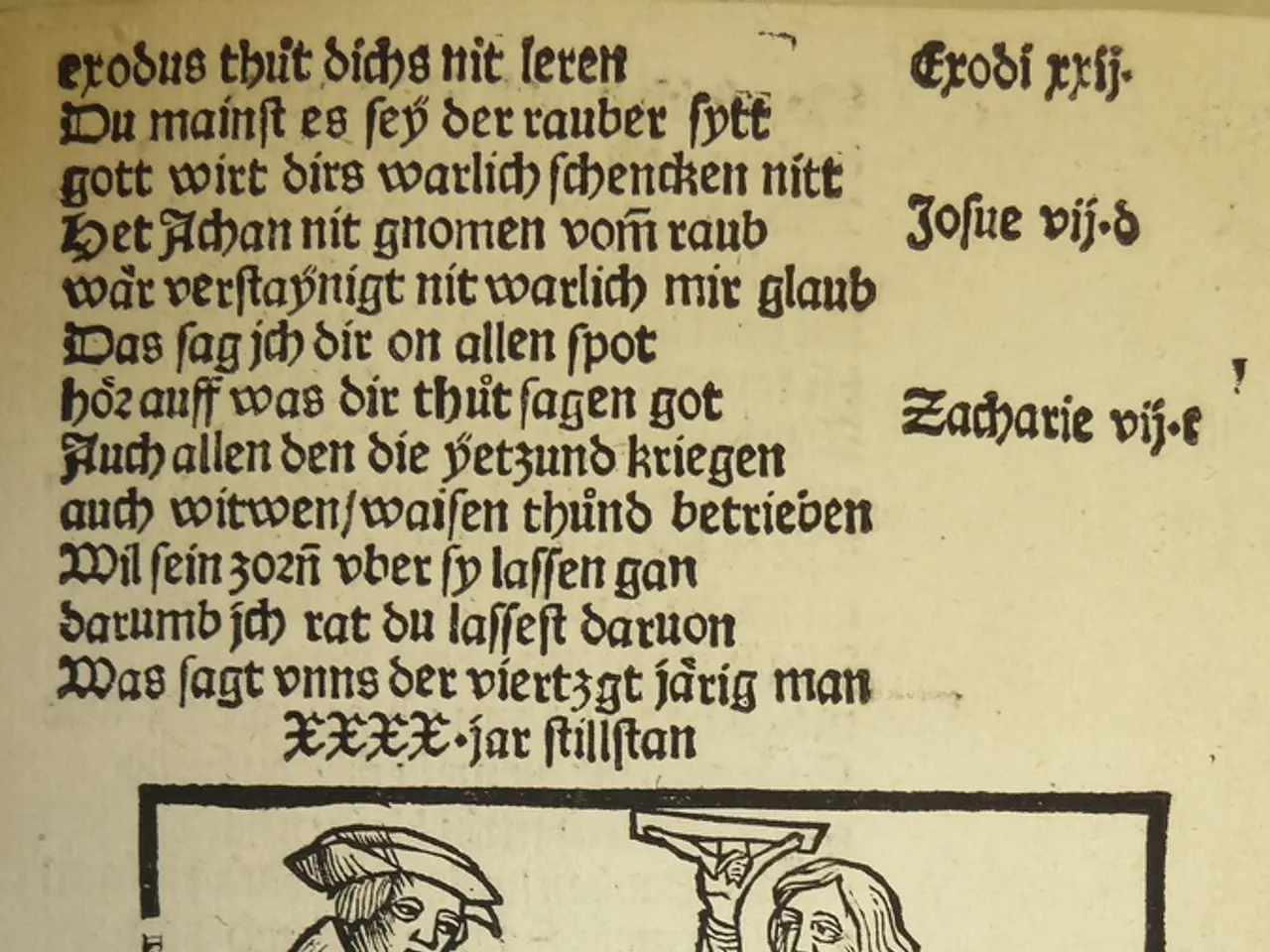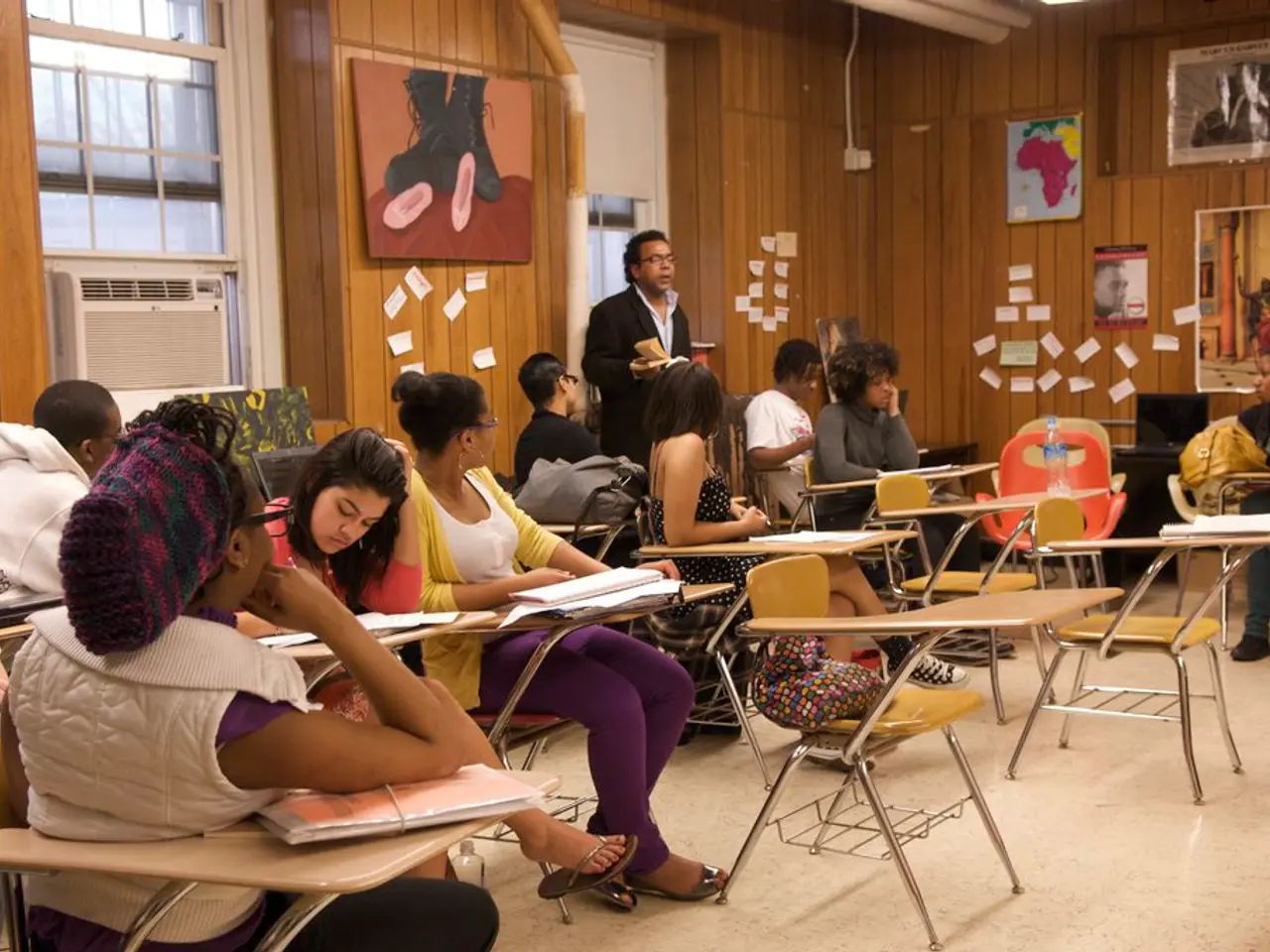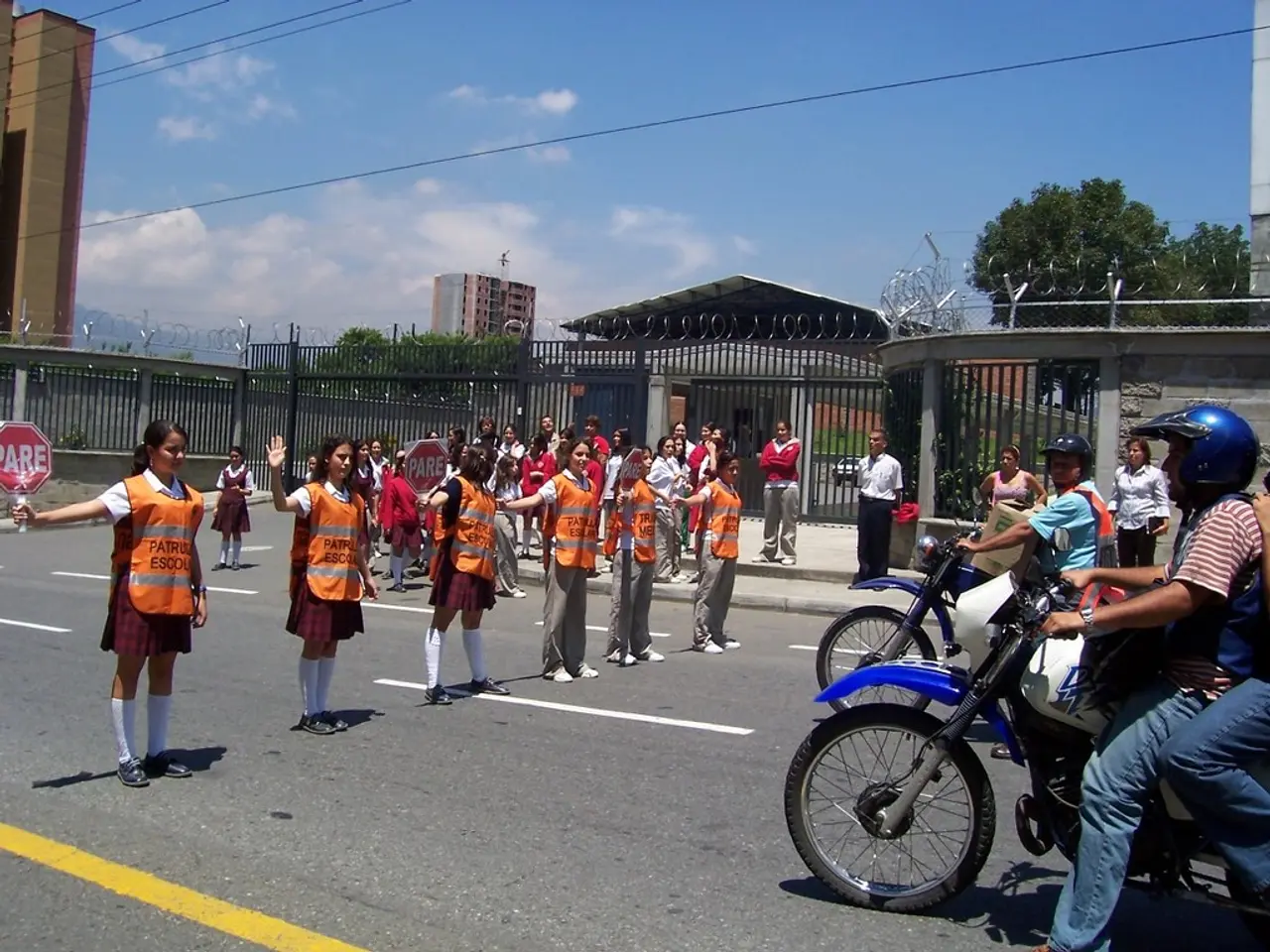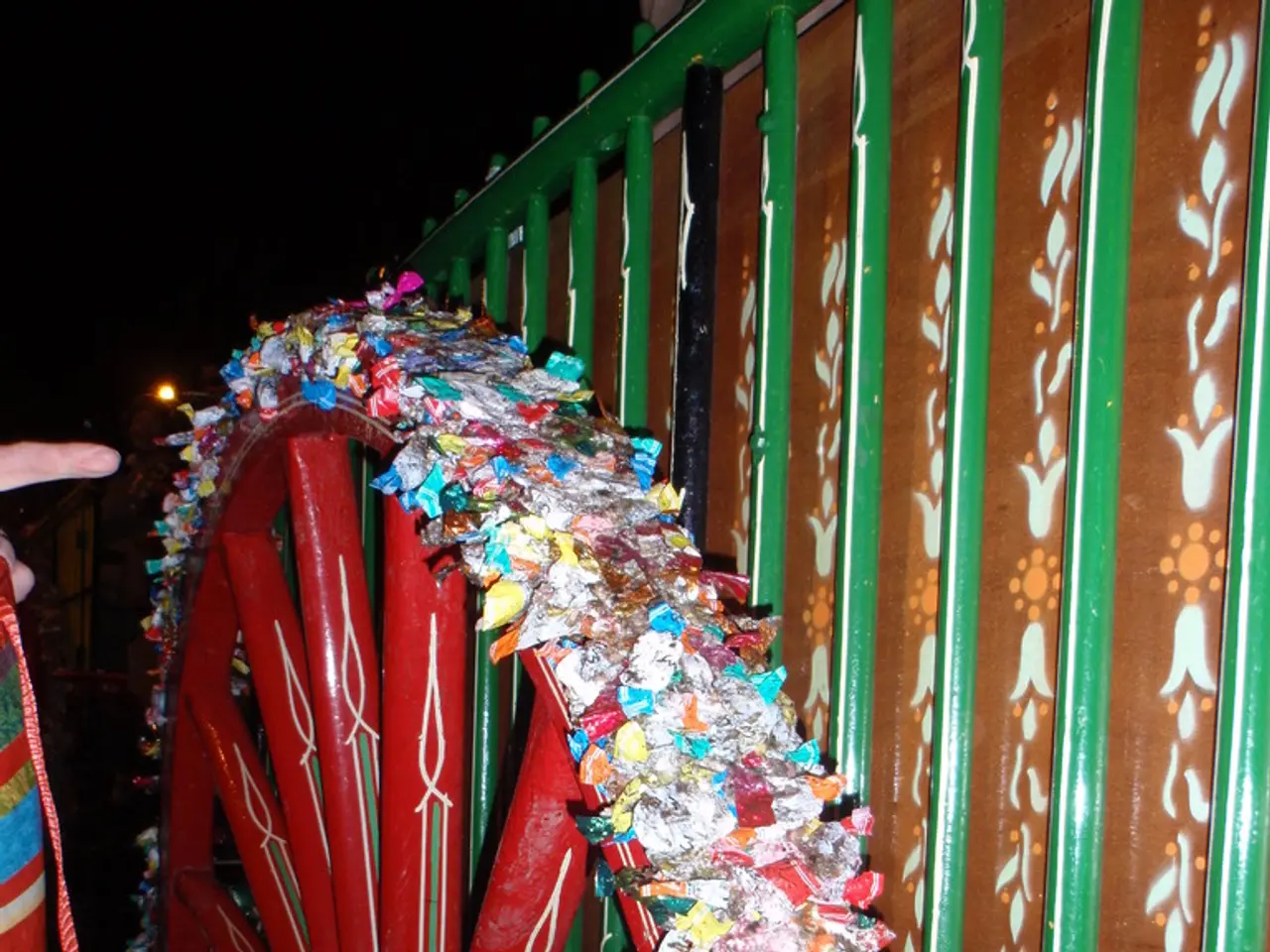To Enhance the Readability of Academic Writing, Seek Advice from a Seasoned High School Scholar.
Demystifying Language Project Empowers Students with Knowledge on Language and Power
The Demystifying Language Project (DLP), a research and social justice initiative, recently held a three-day writing workshop in 2023, bringing together 24 high school and undergraduate students to collaborate with 12 established anthropology professors. The aim was to make academic writing more accessible to public audiences, turning research articles into short pieces for high school students.
The event, which took place as part of the DLP, kicked off with authors explaining their main intention, sharing their fieldwork, asking students questions, and defining key words and ideas. The Central American social justice concept of "accompaniment" inspired the workshop's activities, fostering interactions where everyone brought their own expertise to the shared project.
One of the student-author collaborations resulted in an essay by Athalia McCormack and Danna Rojas about a fifth-grade student named Aurora, who avoided discussing immigration due to the risk it posed to her undocumented family members. The collaboration directly shaped the final short essays that now appear on the DLP website as an open-access educational resource for all to use.
Nelson Flores and Jonathan Rosa, two authors, chose to address readers directly in their DLP essay about bilingual students: "How would you feel if someone told you that you didn't know any language?" Another collaboration, led by undergraduate Sitara Vaidy, critiqued harmful stereotypes of First Nations characters in Disney movies in the essay, "What Makes the Indian Sound Indian."
The writing workshop fostered students' academic self-confidence, which was reflected in the impassioned and insightful pitches they delivered. Each team created a 90-second "elevator pitch" that included four components: the most important idea from the original article, how the author did the research, one supporting ethnographic story, and the "so what" message.
Athalia and Danna presented a 90-second pitch about linguistic anthropology to an audience of 40 high schoolers, undergraduates, and professors. Their topic was based on original research by Ariana Mangual Figueroa. Sharese King, an author, analyzed the trial of George Zimmerman, who was charged with killing Trayvon Martin, a young unarmed Black man, in Florida in 2012, in her DLP essay about language and power in legal contexts.
The DLP resources will be used for critical language courses, where students and teachers study the scholarship of linguistic anthropology and conduct research on their own language(s). The project aims to make scholarship on the politics of language available in public high schools, making visible the ways that unquestioningly making standard language the default in classrooms reproduces inequalities.
The DLP is co-directed by Ayala Fader, Lynnette Arnold, Justin A. Coles, Britta Ingebretson, Mike Mena, Johanna S. Quinn, and Bambi B. Schieffelin. The pitch concluded with a call for empathy towards undocumented students and immigrant children, emphasizing the importance of understanding and challenging linguistic power dynamics in education.
[1] Demystifying Language Project [3] Fader, Ayala, et al. "Demystifying Language: The Demystifying Language Project." Language, 95(3), 2019, pp. 507-526.
- Exploring various topics such as the politics of language in education, representation of minority groups in entertainment, and the impact of social media on lifestyle, the Demystifying Language Project serves as a platform for discussing and challenging language-related issues that extend beyond academia.
- In addition to promoting education-and-self-development through accessible academic writing, the Demystifying Language Project also offers social media platforms and entertainment resources that encourage critical thinking and awareness in societal interactions, fostering a more inclusive and equitable lifestyle.




